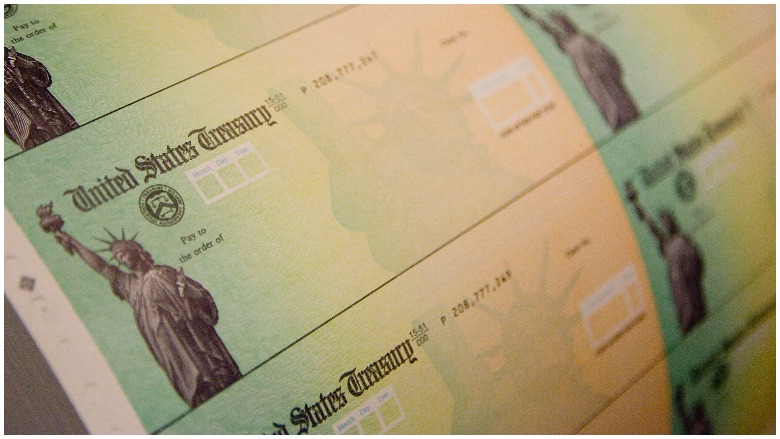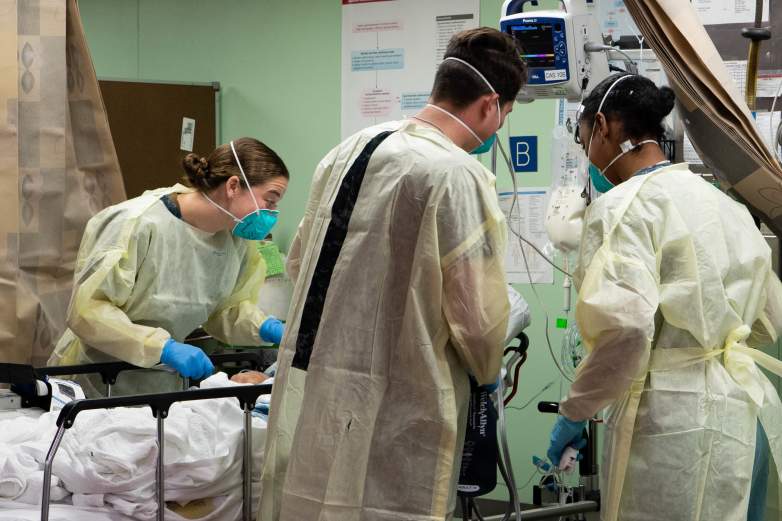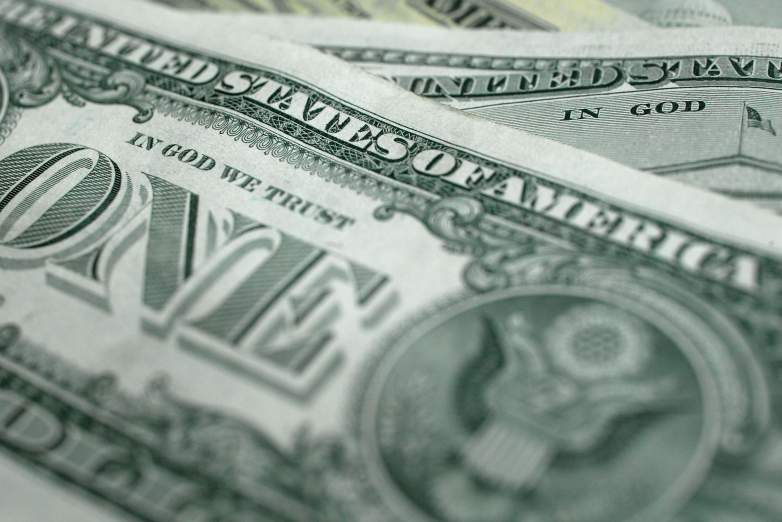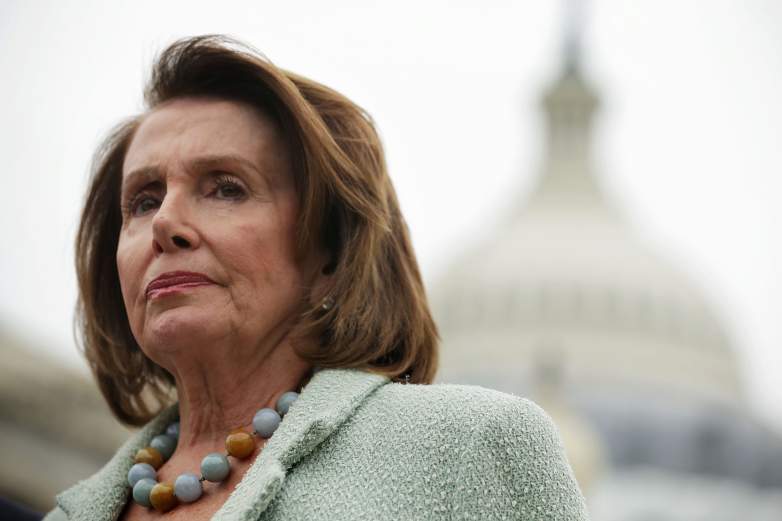
Getty A bipartisan group's coronavirus relief proposal includes a "booster" provision that calls for a third stimulus check next year.
As pressure mounts for another round of coronavirus relief before the upcoming election, a bipartisan group unveiled a roughly $1.5 trillion proposal that includes booster provisions extending benefits into 2021.
The Problem Solvers Caucus, comprised of 25 House Democrats and 25 House Republicans, announced the “March for Common Ground” on September 15, seeking to reignite the currently stagnant negotiations.
The package features automatic “booster” provisions that could expand certain aspects of federal relief, including unemployment benefits and a potential third round of stimulus checks, into the new year.
Here’s what you need to know:
The ‘Boosters’ Depend on Hospitalization Rates and Vaccine Production

Getty
The March for Common Ground includes two booster provisions based on “covid hospitalization metrics and vaccine progress,” the bill states. The provisions touch on extending federal unemployment benefits into 2021, as well as the potential to issue a third round of checks that same year.
If hospitalization rates become too high, or if a vaccine is has not yet been created, a “booster” could automatically be activated to extend extra federal unemployment benefits for another three months beginning in February 2021, according to the bill’s online version.
A third round of $1,200 stimulus checks could also be automatically sent in March, if the booster is met.
If both boosters are enacted, the overall cost of the package could mushroom up to roughly $2 trillion, Forbes added.
March for Common Ground’s current framework already calls for a second round of checks, with up to $1,200 for individuals and an additional $500 per child and dependent adult. It also seeks to revamp federal unemployment benefits, with up to $450 per week for eight weeks, and then replace lost wages up to $600 per week for five weeks thereafter.
Built-In ‘Reducers’ Could Scale Back Funds for State & Local Governments, Among Other Things

Getty
The Problem Solvers Caucus also incorporated automatic “reducers” or “stabilizers” into its bill. The provisions are designed to balance out fiscal policies with changing economic conditions, according to Forbes.
“The stabilizer is what lets the government respond to expansions and contractions in the economy without having to take direct legislative action each time a crisis arises,” the outlet reported.
Under the proposed bill, funds for the Paycheck Protection Program, state and local governments and rental assistance could all downsize if the same hospitalization and vaccine metrics show opposite trends from their “booster” counterparts.
Top Democrats Have Already Rejected the Bipartisan Proposal

GettyU.S. House Speaker Nancy Pelosi.
Eight House Democratic committee chairs released an online statement on September 15 — just hours after the bill’s debut — that criticized the March for Common Ground of falling “short of what is needed to save lives and boost the economy.”
“When it comes to bolstering the public health system, supporting state and local governments and assisting struggling families, the Problem Solvers’ proposal leaves too many needs unmet,” the legislators wrote in the statement.
“With the general election just 49 days away and the Postal Service sabotaged by the Trump administration, their proposal also abandons our responsibility to protect the life of our democracy.”
Nonetheless, House Speaker Nancy Pelosi assured that same day that her chamber would not leave for the November elections before agreeing upon another round of coronavirus relief, according to The New York Times.
“We have to stay here until we have a bill,” Pelosi told lawmakers during a conference call, the newspaper said, citing two people “familiar with the remarks.”
Trump Says He Supports the $1,200 Stimulus Checks in the Bipartisan Framework
President Donald Trump sang a slightly different tune during a September 16 White House press briefing.
The president showed support for portions of the bipartisan stimulus bill, more specifically, the stimulus checks mandate.
Trump did not fully endorse the proposal, though, but he insinuated to a reporter that a deal is on the horizon.
“We’re getting closer. We’re getting closer,” he shared during the briefing.
READ NEXT: Gary Kirby: Florida Bar Owner Bans Masks, Vows to Remove Patrons